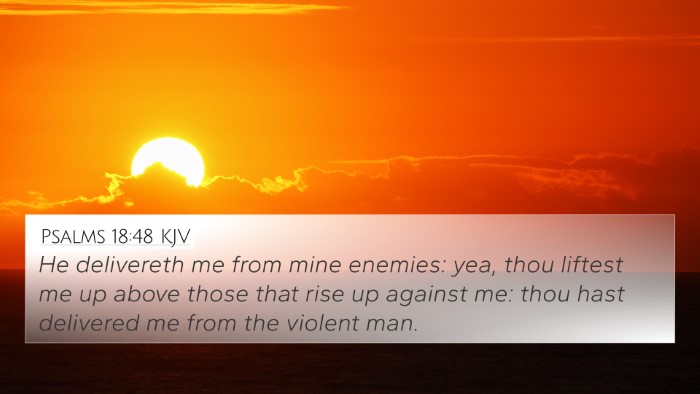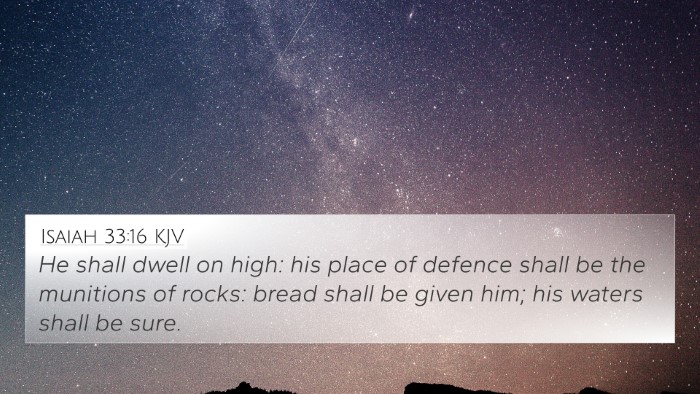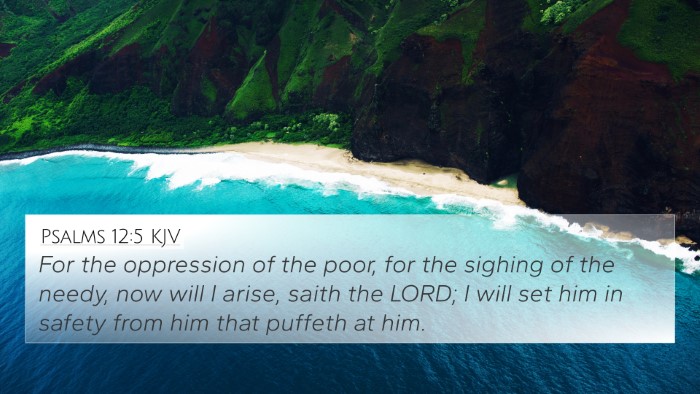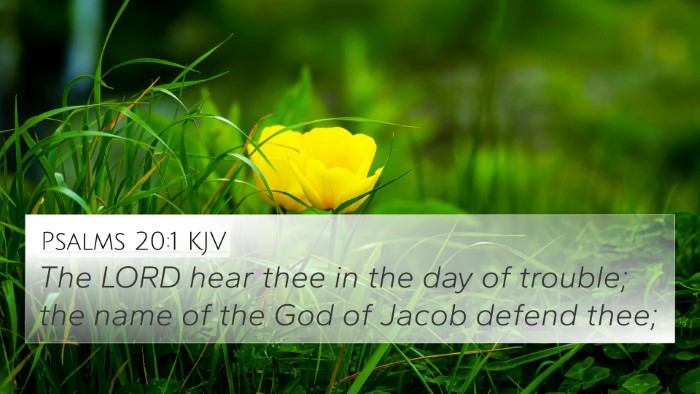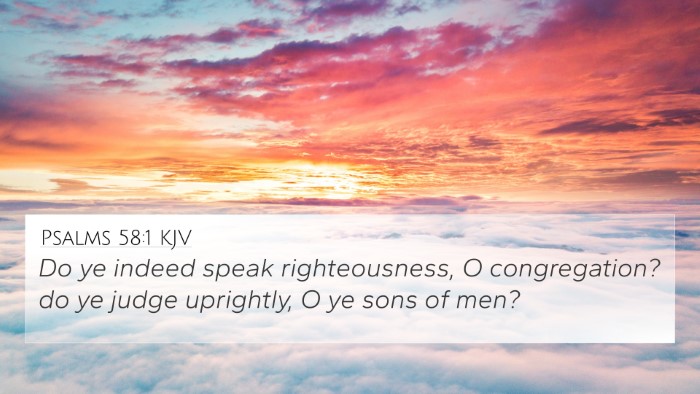Psalms 59:1 - Summary and Interpretation
Bible Verse: Psalms 59:1
Scripture: "Deliver me from my enemies, O my God; defend me from those who rise up against me."
Meaning and Interpretation
Psalms 59:1 is a heartfelt plea from David during a time of personal crisis, reflecting his deep reliance on God for deliverance and protection from adversaries. This verse encapsulates the theme of divine rescue, underscoring the believer's dependence on God amidst persecution and threats. The following insights, derived from notable public domain commentaries, elaborate on the verse's implications:
-
Matthew Henry's Commentary:
Matthew Henry highlights that the psalm conveys David's urgent request for deliverance, emphasizing that enemies can manifest in various forms—physical, moral, and spiritual. He notes that recognizing God as a defender against these foes is crucial for spiritual resilience. Henry draws attention to the relational aspect of David's cry, indicating that it is not just a request for physical safety but a plea for relational reassurance from God as his protector.
-
Albert Barnes' Notes:
Albert Barnes explains that David's enemies are depicted as powerful and violent, creating a sense of urgency in his request for divine intervention. Barnes also points out the significance of God's intervention, listing past instances where God defended His people. He reflects on how this psalm is significant as a part of the broader narrative of God's faithfulness amidst adversity, encouraging readers to acknowledge similar patterns in their own experiences.
-
Adam Clarke's Commentary:
Adam Clarke elaborates on the context of David's plea, suggesting that this verse illustrates not just personal enemies but also broader societal injustices. Clarke's analysis draws connections to how God’s defense serves a dual purpose—protecting His people and executing justice against their wrongdoers. Clarke emphasizes that God’s defense is not merely reactive; it has a proactive role in upholding justice in the world.
Cross-References
To further understand the themes present in Psalms 59:1, we can explore relevant verses that highlight similar concepts of divine deliverance, protection, and the nature of God as a defender:
- Psalms 18:2: "The LORD is my rock and my fortress, and my deliverer."
- Psalms 34:7: "The angel of the LORD encamps around those who fear him, and delivers them."
- Psalms 121:7-8: "The LORD will keep you from all evil; he will keep your life. The LORD will keep your going out and your coming in from this time forth and forevermore."
- Isaiah 54:17: "No weapon that is fashioned against you shall succeed, and you shall confute every tongue that rises against you in judgment."
- 2 Thessalonians 3:3: "But the Lord is faithful. He will establish you and guard you against the evil one."
- Romans 8:31: "What then shall we say to these things? If God is for us, who can be against us?"
- Proverbs 18:10: "The name of the LORD is a strong tower; the righteous man runs into it and is safe."
Thematic Connections
Psalms 59:1 invites readers to explore the inter-Biblical dialogue between various texts concerning God as a defender. These connections can be categorized as follows:
-
Divine Protection:
Links between Psalm 59 and other verses highlight God's protective nature, emphasizing trust amidst suffering.
-
Deliverance Themes:
The motif of deliverance recurs throughout scripture, fostering a deeper understanding of God’s intervention in human affairs.
-
Justice and Judgment:
Reflections on how God’s deliverance also encompasses justice against oppressors in various Biblical narratives.
Conclusion
Psalms 59:1 serves as a poignant reminder of reliance on God during times of peril. Through the insights of various commentators, the scripture showcases the vital relationship between God and His people. Utilizing tools for Bible cross-referencing significantly enhances understanding, revealing the complex interplay of divine themes across the Biblical text. By engaging with inter-Biblical dialogue, believers can draw assurance from the continuity of God’s promises and faithfulness throughout scripture.




